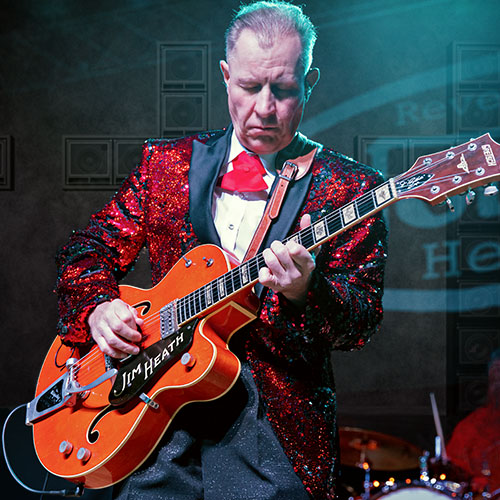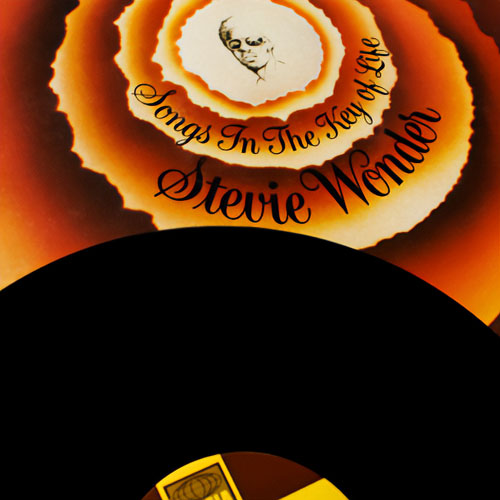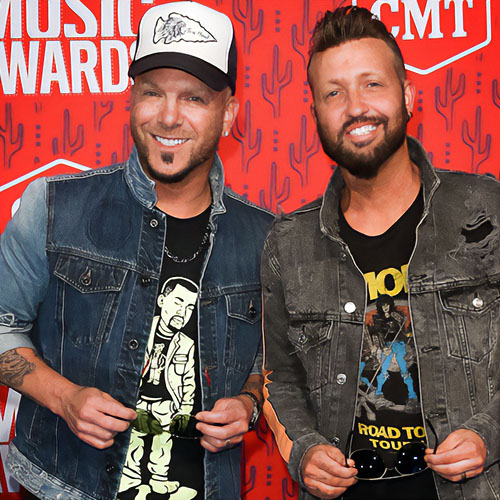Toby Keith fought his way from the oil fields to become the Country Music Association’s Male Vocalist of the Year, sitting on a net worth of some $25 million. He didn’t do that by being a diplomat.
How Do You Like Him [Again]
Oklahoma’s Toby Keith made his first country recordings in 1993, and his label, Mercury, had so little faith in the three acts they signed that year — the other two were the now-superstar diva Shania Twain and the instantly forgettable John Brannen — that the threesome was sent out as a package to win over disc jockeys and play second-string clubs. Though Keith, a former defensive end with the USFL’s Tulsa Outlaws, went on to garner radio hits and deliver gold and platinum albums, industry respect and major stardom eluded him for years.
But Keith, who also worked the oil fields before finding his way to Nashville, is a scruffy survivor. Today, the 2001 Country Music Association’s Male Vocalist of the Year finds himself sitting on a net worth of some $25 million, with a string of commercials for long-distance carrier 10-10-220, offers to star in his own sitcom, and the sweet taste of revenge on his tongue. His megahit “How Do You Like Me Now?!” stands as an autobiographical testament to his fortitude, and such upbeat hits as “I Wanna Talk About Me” and “I’m Just Talkin’ About Tonight” proclaim his independence.
A relentless prankster, the 40-year-old Keith — born Toby Keith Covel — loves to torment strangers in airports between flights, going into a Billy Bob Thornton Sling Blade impersonation or, along with his manager, approaching little old ladies to ask for directions to the nearest “pisser.” Yet he’s also capable of tempering his overgrown-frat boy personality with thoughtful ruminations on world events, women, sex …
How to Succeed in the Music Business
Keith’s award-winning last CD, Pull My Chain, proves he’s a man whose time has come. His success often required every ounce of faith he had in himself.
I’ve been on four labels. I started out on Mercury in ’93 with “Should Have Been a Cowboy,” which some people at Billboard say was the most-played song of the decade. I had another Top 5 and two more No. 1’s off that album, sold 1.2 million the first year. But I wasn’t getting nominated for any new-comer awards.
One regime was in place at Mercury when they broke my record out. But by the time it came to vote, they had divided forces. The president and vice-president went separate ways and gave [producer] Harold Shedd his own label, and Harold asked if I could go be the flagship [artist] at Polydor, which was their sister label. Things never did go as planned over there, and it dissolved. A&M tried to come in and take over. We had two No.1’s and a Top 10 on one album. But without continuity, you don’t get the votes. You’ve got to have a plan and a push to create some of those things, and I have never had that.
When I came back to Mercury, I was damaged goods. It was kind of like, “You never did do as well as you did with us the first time.” And by then I had figured out where my music was supposed to be and what was really workin’ good for me. I had three albums, all gold or platinum, and consistent hits. And I come back, and the first thing I’m told is, “Hey, come by the A&R department; we’ve got some things we want to play you for your next album.” That’s a dagger in the heart of any songwriter. I just told my manager, “This ain’t goin’ to work. I write what I do and to hell with anybody else.” I had cut 14 or 15 songs, including “How Do You Like Me Now?!,” “Blue Bedroom,” “You Shouldn’t Kiss Me Like This,” and “Getcha Some.” I said, “What do you think of these?” And they came back and said, “We like ’Getcha Some,’ and we would like to do a Greatest Hits on you.”
Then I turned in my How Do You Like Me Now?! album, and they rejected it. I said, “So let me go.” They said they would, and they let me buy my music. That’s how little they believed in it. I bought the damn masters for $110,000 and sold them to DreamWorks, my new label, and added two songs. When it was all said and done, Mercury let the Male Vocalist of the Year walk out with the Album of the Year under his arm.
I don’t [avoid gloating about it]. I stand for everybody that has been shit on. And so do the Dixie Chicks, in suing their record label. New-artist record deals are practically on the verge of illegal. They’re almost a full-fledged rape.
And the Winner Is …
Despite his success, Keith was surprised to win CMA ’s Male Vocalist of the Year this past November.
I really didn’t [think I would win]. I’d won the [Academy of Country Music award], but the ACM is a little more liberal and will go with the trend a little more. The CMA has never been really good about accepting changes. So I thought I was about a year away for Male Vocalist. Actually, I thought we had Song of the Year wrapped up, because “How Do You Like Me Now?!” was the most played song of the year by a mile. And when we didn’t win Song, I thought, There’s no way I can win Male.
Yanking Chains
Keith has brought the irreverence and smart-ass humor back into a country-music scene that’s grown too polite and too scared.
When “Getcha Some” came out, everybody was like, “I can’t believe you are sayin’ that.” Saying what? I said get you some love… get you some money … and if you ain’t got enough happiness, get you some babies. I didn’t say get you some sex or anything else. It doesn’t say anything filthy. It’s what you make it. Everybody wants to stay safe.
[The video for “You Shouldn’t Kiss Me Like This ”] was pretty steamy. I’ve done a lot of videos and I’ve never been real hip on just sellin’ T&A, but that was a very sexual song. My thought when I wrote that song was the moment when two people come together who’ve just been friends or acquaintances. He always thought, “She’s too nice of a girl for me to ever sleep with. If I’m goin’ to be a trampy ol’ boy, I’m goin’ to use these other ol’ girls, but she’s kind of my favorite, so I want to keep her pristine.” And then one night she lays that big rocket’s-red-glare kiss on him, and he is like, “Whoa, now, hold it!” It’s a three-minute song about a five-second event. With the video, there was absolutely no nudity with the swimmin’-pool stuff, or CMT wouldn’t have shown it. But it certainly suggests it. I think maybe DreamWorks cut some of it to get it on the air, but not much.
When we first shipped “How Do You Like Me Now?!” the business was still so afraid of that song. They fear the 25- to 55-year-old women and don’t allow them to think for themselves. But as soon as you see the video on that song, you can’t feel sorry for that girl anymore, and women didn’t put themselves in her shoes. The great thing is that people come up with their own “How Do You Like Me Now?!” stories, and I’ve heard them all. Like, “My teacher said that I would never amount to anything, and now I am the principal at the high school and I fired her the other day.”
Hail to the Chief
After the Monica Lewinsky affair, Keith frequently used a comedic bit about Bill Clinton in his stage show.
I used to say, “You know, I took a tour of the White House one day, and we was by the Oval Office and I overheard Bill Clinton talking on the telephone.” And I would go into my impersonation: “The next time Hillary goes out of town, you ought to swing by the Oval Office here, pick up a bottle of Mad Dog 2020 and a box of those cigars.” And then I’d intro “Getcha Some,” and the crowd would just scream. But I played the White House for President Bush about a month before the Twin Towers attack. I went in thinking, He was just a governor a few months ago, and he hasn’t really had time to do anything. But it was very intimidating. Standing with the president and his wife and 30 or 40 people, I was really honored to be there. I just got a whole new respect for it. But I also had a real funny feeling standing in the center of the room, looking out over the South Lawn at the people out at the gate. I felt really unsafe in there. I guess we’re really fortunate we had the heroes that crashed that plane in Pennsylvania, because it was probably headed for the White House. Anyway, I quit doing the President Clinton stuff out of respect for the office.
“I stand for everybody that has been shit on… New-artist record deals are practically on the verge of illegal. They’re almost a full-fledged rape.”
The Redneck and the Redcoat
Keith is known as a man who refuses to make compromises in his career.
The only time I compromised was that duet with Sting, “I’m So Happy I Can’t Stop Crying.” Our label put us together for that. The lyrics were really good, but the song was just a little too cosmic for me, you know. I said, “You know what? This ain’t for me.” And the whole time they’re telling me, “Hey, Sting wants you to do it. He’ll play bass and sing on it if you will cut it on your album.” I said, “Okay, if that’s the case, let’s do it.” We cut it in Nashville and shipped it to England, and he sang on it, but he didn’t play bass. And it was a big radio record, but it didn’t sell any units. Then when it came time to do it on the CMA awards show, he came in and we did the pop version, which didn’t sound anything like my version. I thought that was a slap in the face, and we didn’t get along too good at all. He’s a pretty high-maintenance guy, and I’m a real low-maintenance guy, and we’re from different parts of the planet. Plus, he didn’t do all the big media they said he would for it. At the end of the night, it just left me goin’, “Never compromise like that again.” But that’s what happens when you cross a redneck with a redcoat.
The New Patriotism
Keith went to Oklahoma City after the bombing there, and to Ground Zero to do a relief show for the Salvation Army after the September 11 attacks, when interest in country music soared.
Everything is real right now. You’ve got all of these songs about people’s emotions and values, and you’ve got the patriotic stuff. People need to grab on to something right now. That’s why country thrives in bad times.
Oklahoma City was mind-boggling. To think you could fill up a Ryder truck with anything man-made and do that much damage. That was the first piece of terrorism I had ever seen, and it left a huge hole in my soul, until I went to Ground Zero. I had played that stage in the plaza at the Twin Towers years ago. I remember looking up at them and thinking how unbelievable they were, and wondering how anyone could even want to go to work in those buildings, they were so massive. And then to think they just swallowed those jumbo jets. When I saw the actual damage, it just made me angry and lost. CMT asked me to be part of its Country Freedom show, and they had me interview people where the firemen go in and out. I was talking to priests, asking, “What do you tell people after something like this when they ask how God can exist?” And I was getting some of the best answers I had ever heard. But your brain won’t let you believe what you see down there. TV is just such a small window that it downsizes things. The magnitude of it is breath-taking.
God and Country
When it’s pointed out to Keith that few country artists thank Jesus Christ for their success, as Keith did at the CMA awards, his response is quick.
Well, maybe that is why we are having people fly into our buildings. People have gotten too far away from God. When I was a kid, you pledged allegiance to the flag in school. They’ve taken that out. When we used to go on the football field to play, everybody would bow their head and say a prayer. They’ve taken that out. The further you get away from those kinds of values, the more shootings there will be in schools. We didn’t carry guns to school, and we didn’t come home from the army and get a Ryder truck and fill it up with fertilizer and blow up a government building. There has always been evil, but not like from the common folk now.
With the Osama bin Laden thing, we gave everybody in the Taliban a warning. These people in the Twin Towers didn’t have any warning. They got a 757 jumbo jet flying right into their office window. People went up on the roof of that thing to get away from the fire, and then rode a building down 110 stories. There were daddies that didn’t come home that night, and there’s mothers wondering how they are going to feed their kids. The system is backwards to me. I think it’s great there are American flags waving everywhere and that everybody is getting closer to God. That’s going to be the best thing to come out of this.
Female Trouble
Singer Amy Grant, after hearing “I’m Just Talkin’ About Tonight,” told Keith (who’s been happily married for 18 years), “You sure have issues with women.”
“I’m Just Talkin’ About Tonight” doesn’t say that the guy is goin’ to go nail the girl. It just says, “Honey, I don’t care what you’ve got planned in the future. I just want to know, do you want to dance?” He says in the song, “I’m not talkin’ about whether we’re wrong or we’re right,” and “I’m not talkin’ ’bout hookin’ up and hangin’ out; I’m just talkin’ about tonight.”
[It does have sexual connotations], but it leaves it open to you to decide how nasty it is. Speaking of women, though, I am probably the only one that’s ever sung a song that talks about that time of the month [“I Wanna Talk About Me”]. When that song came out, I had some people in radio say, “He’s gone over the line this time.” But this ain’t pushin’ the envelope any more than “How Do You Like Me Now?!”
Hod-Rod High
People assume Toby Keith wrote “How Do You Like Me Now?!” for a girl who ditched him years ago, and he’s happy to correct that assumption.
I would never, ever flatter any of my past girlfriends with the notion that I wrote a song about them. Plus, I never dated a valedictorian and I sure didn’t date the cheerleader.
Drilling for Oil
After high school, Keith took a job working on oil-drilling rigs, where he once saw a coworker die on the job.
I started knowing about tenth grade that I was going to go to work for my dad in the oil fields as soon as I graduated. It was a worldwide major oil-field firm. There were guys makin’ $150 an hour to go to Saudi Arabia and stay over there six months. But three years after I got into it, the oil boom was over. When it started, there were 1,500 drillin’ rigs, and people were livin’ under underpasses because there wasn’t enough housing. It was like a gold rush. But in three short years, when it all crashed, there were 65 drillin’ rigs. We could buy it cheaper than we could drill it.
The service we provided [involved going] out on the drillin’ rig and staying until the job was done. If it meant stayin’ up 40 or 50 hours, you did it. And these rigs were in desolate places, so it was like being with soldiers out in the middle of nowhere. I must have been 20 when I saw that guy die. He was 19, with a wife and a one-month-old baby at home. He wasn’t even supposed to be on the rig with us. He was filling in for somebody else.
The drill in’ rig picked up a 45-foot joint of five-and-a-half-foot steel pipe and was lifting it. It got 50 feet up there, and he had fouled the line — put the line on the pipe wrong. It got up and broke, snapped in two, and fell and hit him. It never even entered my mind that he was dead. I was checking his pulse, and I thought his body was goin’ into a shut-down mode. I didn’t know he was dead until the helicopter ambulance got there. The guys come up on the floor and brought their gurney, and I was speed in’ things along, trying to get him off that substructure, and they said, “There’s no need to hurry.” And then I did what you are supposed to do, just ride off of it. You just got to take it up and move on.
The Toby Keith Music Family Ties
Mom: My grandmother owned a supper club in Fort Smith, Arkansas, where my mother was raised. My mom would sing, and some of the people in the music business over there said she had pipes like Patsy Cline, and even talked to her about recording when she was 20. Then I came along, and that was never talked about again.
My first memory is crawling around on a hardwood floor and hearing her sing. She could whistle just like a clarinet, right on pitch and very musical. She would be poppin’ her dust rag and goin’ through and singin’ those Skeeter Davis records and Patsy Cline songs. I thought everybody’s mother was supposed to sing like that.
Dad, who died in a traffic accident in 2001: John Wayne died at my house. My dad was real well-known in our community and real well-loved, and his buddies were comin’ through the line and lookin’ at me, going, “Yeah, you may be famous out there in the real world, but you ain’t as famous as that old man is right here in this town.” That’s how great a man he was. He said things that I had never heard anywhere else in my life. He was like Will Rogers. The original creative ideas I get when I write are from him, and my vocals and music ability are from my mother. When Will Rogers mates with Patsy Cline, you get a singer-songwriter.
His Sexual Education
Keith’s grandfather spurred his grandson’s early sexual education, greeting the ten-year-old with the line “You been getting any pussy?”
My grandfather was one of a kind. I can’t ever remember him not greeting me that way. It always made me laugh. I would get my buddies around and say, “Hey, my granddad’s here.” And everybody in the neighborhood would rush in with me, and he’d start that, and it would knock the boys out. It would be all over school the next day.
Sex is at the top of every boy’s list, but it never was my priority as far as day-to-day. It’s usually not as plentiful as a 14-, 15-, or 16-year old boy wants you to believe. But that is probably the most unique learning experience that you go through in life, because you start out with zero help. All you hear are stories from your buddies and their older brothers, and you really don’ t know how much to believe. And when you finally do get there, they were so wrong.
I waited until I was 14 or 15. I didn’t go all the way when I was 14, but I got inquisitive and started to figure out what I was supposed to do. I didn’t want to be the only guy in the world that didn’t know how. I think that is the biggest fear in a young boy’s heart.
Toby Keith on Sex Education
My wife [talked with our two daughters]. I’ll talk to my son. I’ll ask him if he’s gettin’ any.
As you may recall (although that would admittedly take a fairly dedicated Penthouse site fan, we ran an earlier article on Toby Keith focused on his philanthropy and work with veterans and the military. As with all people of high success, Mr. Keith’s depth of character makes him well worth another round here. Of course should you really want to explore that depth, do a little looking around for the work he’s done with Rodney Carrington. It may not warm your heart to the potential of the human condition, but it will make you laugh. If you simply want to experience some Toby Keith Music for yourself, check the tour dates and hope you’re nearby.

























